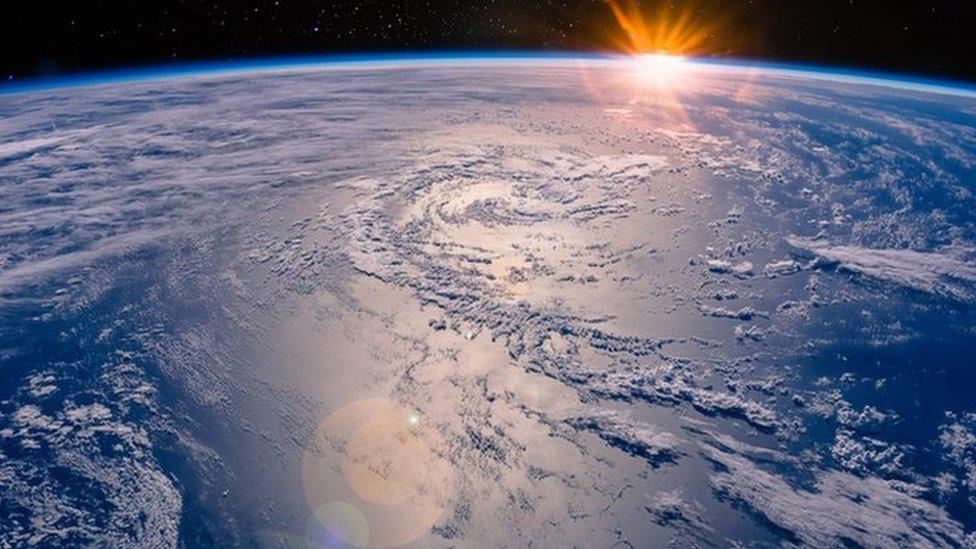Climate Change: Global ocean surface temperature highest since records began
- Published
- comments

A warmer ocean can have a big impact on global weather and marine wildlife
The temperature of the ocean's surface is currently at a record high.
New data taken by the US government has found that since the start of April, the average ocean temperature is at around 21.1C.
The highest the average temperature has been before is 21C, in 2016.
This rise in water temperature will lead to more extreme weather and marine storms, according to climate experts.
Unsure about what the words mean? Check out our climate change word buster further down the page.
Why is the ocean warming up?
The ocean is warming up because the overall temperature of the earth is heating up too.
This is because of global warming, caused by an increased amount of greenhouse gasses in the atmosphere.
When we burn coal, oil and gas, greenhouse gasses like carbon dioxide are released into the atmosphere, which traps more heat from the sun that it is meant to.
This heats up the planet, and the oceans.
A switch to renewable energy like wind power would reduce how many greenhouse gasses are put into atmosphere
Average temperatures have not been quite as high in the past few years due to a weather event called La Nina.
This is when sea temperatures along the tropical west coast of South America are cooler - so they bring the average down.
However, after three years of La Nina, weather experts think we are heading for El Nino.
This is when the Pacific Ocean waters are unusually warm.
What effect does a warmer ocean have on the planet?
The warmer the ocean, the more likely the planet is to have extreme weather.
As the ocean heats up, polar ice caps melt more, leading to an increased amount of water in the sea.
This gets picked up into the water cycle, making rain and storms like hurricanes much heavier.
A hotter ocean also causes problems for marine wildlife, and causes coral bleaching on tropical reefs.
The white colour on these corals is what scientists call coral bleaching - when the coral gets damaged by pollution and rising sea temperatures, and turns white
Greenhouse Gasses - Gasses that trap heat in the atmosphere
Atmosphere - The layer of gasses around earth
Carbon dioxide (CO2) - A type of greenhouse gas, released by burning coal, oil, or gas
Global warming - Caused by greenhouse not allowing heat to escape.
Climate Change - The result of global warming. As the earth heats up we are more exposed to extreme weather conditions such as storms and heatwaves
- Published17 January 2023
- Published16 October 2022
- Published16 March 2023
